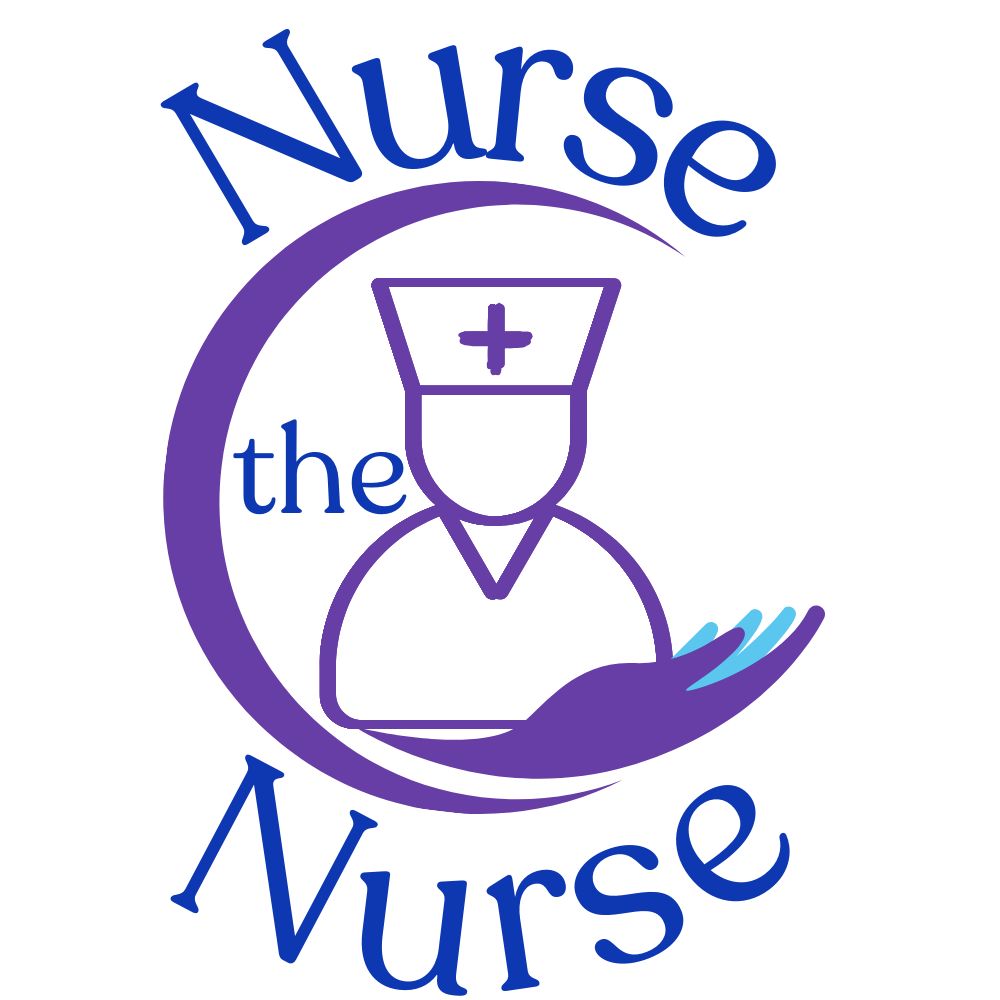The Power of Accountability in Nursing
Learn how to create a culture of accountability within the nursing profession and reap benefits for both healthcare providers and patients alike.

Accountability in nursing is a cornerstone of professional practice, ensuring that nurses are answerable for their actions, decisions, and the care they provide. It is a commitment to uphold the highest standards of care, to continuously improve one's competencies, and to contribute positively to patient outcomes. This article delves into the essence of accountability in the nursing profession, the systems that support it, and the inspiring outcomes it can produce.
The 7 Basic Ethical Principles of Nursing
The ethical framework of nursing is built upon seven fundamental principles that guide nurses in their daily practice. Some sources cite only the first four, but many include all seven. These principles ensure that nurses provide care that is ethical, patient-centered, and professional.
- Justice: Justice in nursing means treating patients fairly and equitably. It involves the fair distribution of resources, respect for patients' rights, and impartiality in care.
- Autonomy: Autonomy respects the right of patients to make their own healthcare decisions. Nurses uphold this principle by providing all the necessary information to patients and supporting their informed choices.
- Beneficence: Beneficence requires nurses to contribute to the well-being and health of patients. It involves taking actions that are in the best interest of the patient and actively promoting good.
- Nonmaleficence: Nonmaleficence is the commitment to do no harm. Nurses must protect their patients from harm and ensure that interventions do not cause unnecessary suffering or injury.
- Accountability: This principle obligates nurses to be responsible for their actions, decisions, and the outcomes of their care. It also involves being answerable to oneself, the patient, and the healthcare organization.
- Fidelity: Fidelity refers to the principle of keeping one's promises or commitments. In nursing, this means maintaining the trust of patients by providing care that is consistent with what has been promised or agreed upon.
- Veracity: Veracity stands for truthfulness. Nurses must be honest and provide accurate information to patients, allowing for informed consent and ethical decision-making.
The Essence of Accountability in Nursing
Accountability in nursing transcends mere responsibility. It is an ethical duty that involves a deep sense of ownership over one's professional actions and decisions. Nurses are entrusted with the well-being of their patients, making accountability not just a professional requirement but a moral imperative. This commitment to accountability ensures that every nurse strives for excellence, transparency, and integrity in their practice.
The nursing profession is governed by a set of standards and a code of ethics that outline what is expected of every nurse. These guidelines serve as a compass, directing nurses toward the right decisions and actions that benefit their patients. By adhering to these standards, nurses demonstrate their dedication to their profession and the trust placed in them by society.
Building a Culture of Accountability
Creating a culture of accountability within healthcare organizations is pivotal. It starts with clear communication of expectations and the provision of adequate resources and support for nurses to meet those expectations. Investigating incidents beyond the initial cause, to find the root cause can prevent similar scenarios from repeating, often with more adverse outcomes. Leadership plays a crucial role in modeling accountable behavior, setting the tone for the entire organization.
Training and continuous professional development are also integral to fostering accountability. By staying updated with the latest evidence-based practices and engaging in lifelong learning, nurses can ensure that they are providing the best possible care. This commitment to professional growth reflects a nurse's dedication to their patients and their profession.
Accountability and Patient Safety
One of the most significant aspects of accountability in nursing is its direct correlation with patient safety. When nurses are accountable for their actions, they are more likely to follow protocols and guidelines that have been established to protect patients. This includes everything from hand hygiene to medication administration and the use of checklists to prevent errors.
Accountable nurses also contribute to a culture of safety by speaking up when they notice potential risks or when they believe that something is not in the best interest of a patient. This proactive approach to patient care helps to prevent adverse events and ensures that patients receive the highest quality of care.
The Role of Regulatory Bodies
Regulatory bodies play a crucial role in maintaining accountability in nursing. Organizations, such as the American Nurses Association, Centers for Medicare and Medicaid Services, and the National Council of State Boards of Nursing, set standards for nursing practice and oversee the licensure of nurses. They ensure that nurses have the necessary qualifications and adhere to ethical and professional standards.
State and Federal Regulations enforce the quality and standards of care set by the Organizations, and provide hands-on oversight of many categories of health-care providers.
These bodies also handle complaints and take disciplinary action when necessary, which reinforces the importance of accountability. By holding nurses to a high standard, regulatory bodies help to maintain public trust in the nursing profession and ensure that patient care is never compromised.
Legal and Ethical Implications
Two of the basic pillars of accountability, nursing has Legal and Ethical implications. Nurses are legally responsible for their actions and can be held liable for malpractice if they fail to meet the standard of care.
Ethically, nurses have a duty to do no harm and to advocate for their patients. This means being honest about mistakes and taking steps to rectify them. Often this includes completing required incident reports, and assisting in investigating and following up on the incident to ensure appropriate measures have been taken to ensure compliance with laws and nursing standards of practice.
The legal and ethical frameworks that surround nursing practice serve as reminders of the gravity of the profession. Nurses are not only accountable to their patients and employers but also to the law and their own conscience.

Accountability in Professional Growth and Employment
Accountability is not just about meeting external expectations; it's also about personal and professional growth. Professional and Employment accountability are the 3rd and 4th key areas of accountability.
Nurses who embrace accountability are more likely to seek out opportunities for learning and advancement. They understand that their growth benefits not only themselves but also their patients and the healthcare system as a whole.
Professional growth is a journey that requires commitment, reflection, and a willingness to challenge oneself. Accountable nurses are at the forefront of this journey, leading by example and inspiring others to follow suit.
Peer Review and Feedback
Peer review is a powerful tool for promoting accountability in nursing. It involves nurses evaluating each other's performance to identify areas of excellence and opportunities for improvement. This process encourages a supportive environment where nurses can learn from one another and collectively raise the standard of care.
Feedback, whether from peers, supervisors, or patients, is invaluable for professional growth. Constructive feedback helps nurses to understand the impact of their practice and to make informed decisions about their professional development.
Accountability and Team Dynamics
In the collaborative environment of healthcare, accountability extends beyond individual nurses to the entire team. Each member of the healthcare team must be accountable for their role in patient care. When accountability is a shared value, teams work more cohesively, communication improves, and patient outcomes are positively impacted.
Team dynamics are strengthened when accountability is a common thread that binds all members together. It creates a sense of unity and purpose, with each member understanding the importance of their contribution to the collective goal of excellent patient care.

Technology and Accountability
Advancements in technology have introduced new dimensions to accountability in nursing. Electronic health records (EHRs), for example, provide a detailed and accessible record of patient care, making it easier for nurses to document their actions and for healthcare providers to audit care delivery.
Technology also offers tools for improving communication and coordination among healthcare teams, which is essential for accountable care. By leveraging technology, nurses can enhance the accuracy and efficiency of their work, further contributing to patient safety and quality care.
The Future of Accountability in Nursing
The future of accountability in nursing looks toward an even greater emphasis on transparency, patient involvement, and the use of data to drive improvements in care. As the healthcare landscape evolves, so too will the mechanisms for ensuring accountability.
By creating a collaborative atmosphere that seeks not to punish and reprimand caregivers in an attempt to satisfy public demand, healthcare administration can, rather, focus more attention on root cause analysis to truly improve patient safety and a more positive working environment for caregivers. Nurses will continue to be at the forefront of this evolution, upholding the trust placed in them by patients and society.
The ongoing commitment to accountability will see the nursing profession grow in respect and influence. As advocates for their patients and leaders in healthcare, nurses will play a pivotal role in shaping the future of healthcare delivery.
Summary
Accountability in nursing is a multifaceted concept that encompasses ethical, legal, and professional dimensions. It is the foundation upon which safe, high-quality patient care is built. By fostering a culture of accountability, supporting continuous professional development, and embracing the role of regulatory bodies, technology, and peer review, nurses can ensure that they are providing the best care possible. Accountability not only protects patients but also promotes personal and professional growth, enhances team dynamics, and contributes to the advancement of the nursing profession.
Test Your Knowledge
Here are three NCLEX-style questions related to accountability in nursing:
- An 87-year-old patient has just been diagnosed with cancer. Her durable power of attorney names her son as her surrogate decision maker. He arrives at the patient's bedside to discuss treatment
options with her. The patient is alert and oriented. Her son tells you that he does not want her to receive any treatment (chemotherapy) because of the side effects and her age. The patient tells you
that she wants to try the treatment. Which decision should be followed by the nurse?
a) The patient's son's
b) The patient's
c) Both—initially the patient's; then the son's when the medication's side effects become severe
d) Neither; this is a legal decision and should be made by a court of law - A pregnant 15-year-old girl presents to the emergency department (ED) of the local private hospital. She has been transported by her mother and appears to be in active labor. The girl is crying uncontrollably and says she is scared and experiencing painful contractions. Her mother states, "We don't have any money or insurance, but this hospital is closer than the public hospital,
and she needs help now." What is the first step that the ED staff should take?
a) Arrange for an ambulance to transport her to the nearest public hospital.
b) Explain to the girl and her mother that the hospital only accepts patients who can pay the hospital bill.
c) Examine her to determine whether her condition is stable or whether she requires immediate medical attention.
d) Inform her mother that she will need to transport her daughter to the nearest public hospital. - Which scenario should the nurse recognize as an example of failing to assess and monitor a client?
a) The nurse fails to notify the healthcare provider in a timely manner when conditions warrant it.
b) The nurse fails to act on prescribed orders, and the client suffers an adverse event.
c) The nurse fails to document a client's allergy, and the client has an allergic reaction to a medication.
d) The nurse fails to treat the client who reports a headache, and the client subsequently has a stroke.
Correct Answers and Rationales:
- B. The patient's
Rationale: The patient is alert and oriented and can make her own healthcare decisions. The son only has the authority to make healthcare decisions once his mother becomes incompetent and unable to process information to make decisions. This is not an issue for the court. The patient will decide if and when to
discontinue treatment.
- C. Examine her to determine whether her condition is stable or whether she requires immediate medical attention.
Rationale: When a client comes to the ED requesting examination or treatment for an emergency medical condition (including labor), the hospital must provide stabilizing treatment; the client cannot be transferred until she is stable.
- D. The nurse fails to treat the client who reports a headache, and the client subsequently has a stroke.
Rationale: The nurse who fails to treat a client who complains of a headache and then subsequently suffers a stroke is failing to assess and monitor. The other clinical scenarios are negligent acts that lead to malpractice. However, they do not fit the scenario of failing to assess and monitor.
